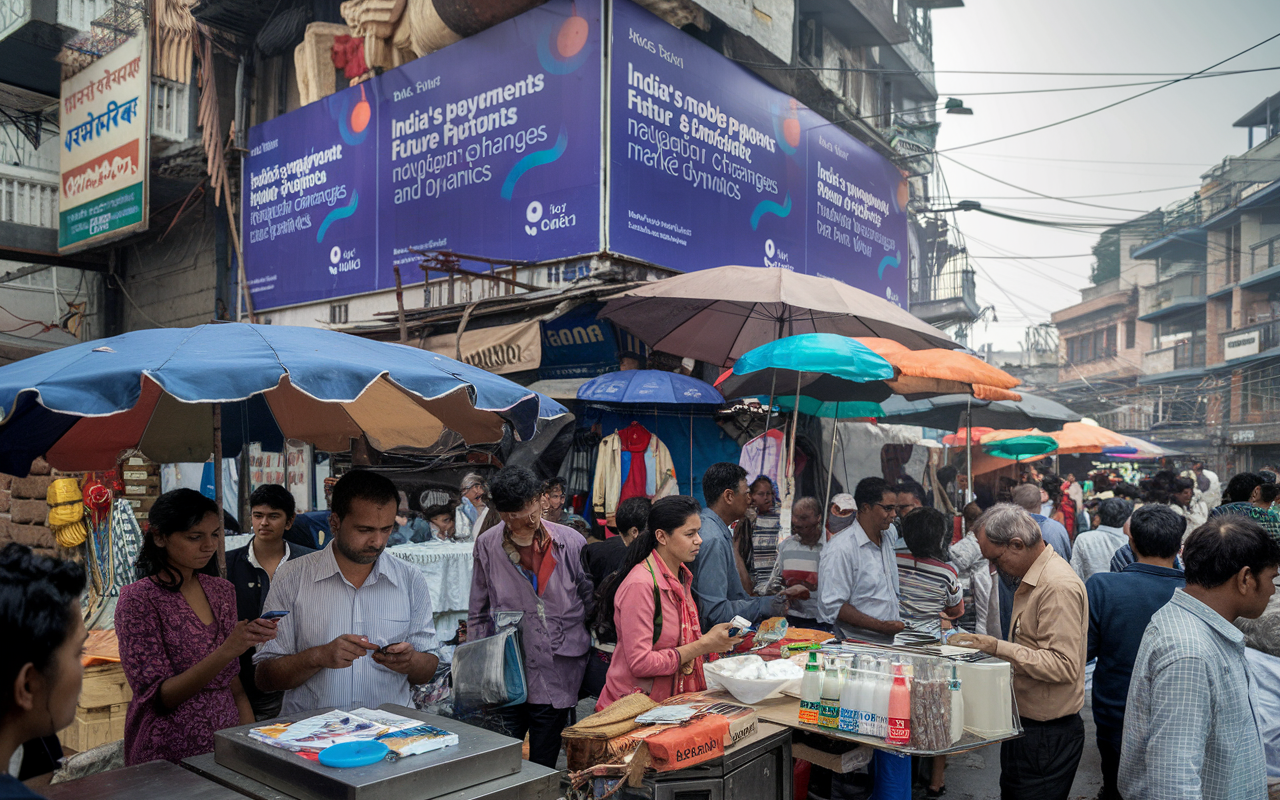India’s Mobile Payments Dilemma: What’s Next? 🇮🇳💳
India is at a crossroads in its digital payments landscape, with the National Payments Corporation of India (NPCI) poised to make a pivotal decision that could reshape the mobile payments ecosystem. As we dive into this crucial moment in Indian fintech, let's look at the implications of the potential regulatory changes for companies like PhonePe and Google Pay, and what it means for the future of digital transactions in the nation. 💡📈
A Game-Changing Platform: UPI 🌐
The Unified Payments Interface (UPI) has revolutionized how millions of Indians conduct transactions, allowing effortless transfers between bank accounts. Currently processing over 13 billion transactions monthly, UPI is not only a key player in digital payments but is also integral to Prime Minister Narendra Modi’s vision to digitize the Indian economy. Cashless transactions are becoming the norm, supported by easy access via mobile devices and the backing of over 50 retail banks. 📲💵
Market Dominance Under Scrutiny ⚖️
With great success comes great responsibility. The NPCI is evaluating whether to enforce a proposed rule capping companies handling more than 30% of UPI transactions. This rule primarily targets PhonePe, which accounts for 47.8% of UPI payments, and Google Pay, holding 37.1%. Such measures are aimed at fostering competition, giving startups a better shot at capturing market share while ensuring fair practices in the field. However, the implications of limiting market dominance are profound and multifaceted. 🤔📉
Economic and Strategic Impacts 💸
If enforced, a market cap could substantially hinder PhonePe’s plans to go public—a move anticipated to be one of India’s largest tech IPOs. According to PhonePe’s co-founder, Sameer Nigam, maintaining transparency from the regulators is essential to stabilize market expectations and ensure a healthy investment climate. He emphasizes, "If there is uncertainty on the regulatory side, going public becomes extremely challenging." 📊🚫
Moreover, for new fintech startups, restrictions on giants like PhonePe and Google Pay could present unique opportunities to gain traction. However, if executed poorly, it may also compromise the overall user experience and access to financial services that many now enjoy. ⚡️
The Balancing Act: Innovation vs. Competition ⚙️
India’s journey towards a digital economy is a balancing act of promoting technological innovation while encouraging healthy market competition. The interventions by the NPCI could signal one of the most significant regulatory measures in India's tech industry, especially given the massive investments pouring in from global giants like Walmart and Meta. These companies see India as an indispensable market for growth, especially with its young and digitally savvy population. 🌍🌟
Conclusion: The Road Ahead 🛤️
As we watch this situation unfold, it’s essential to stay informed about how these potential regulations might affect not just PhonePe and Google Pay, but the entire mobile payments landscape in India. With ongoing talks, the NPCI's decision could deliver an impactful precedent, shaping the future of fintech in the country for years to come.
Keep an eye on this space—India’s mobile payments future is something we should all be excited about! 🚀
What are your thoughts on the mobile payments dilemma in India? Let’s chat in the comments below! 👇💬
#Fintech #IndiaPayments

More Stories
Meta’s AR Ambitions and AI Safety: Insights from the Equity Podcast
Insight Partners Data Breach: A Wake-Up Call for Cybersecurity Awareness
Lovable’s Ascendancy: Anton Osika at TechCrunch Disrupt 2025